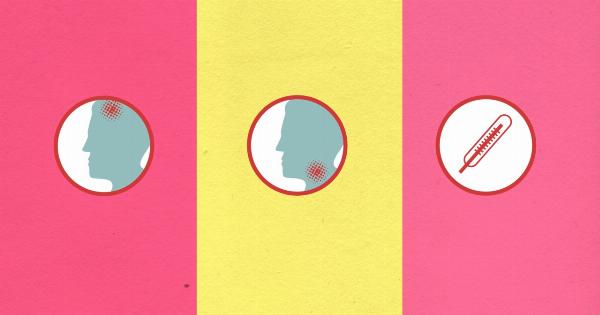Dealing with chronic constipation can be frustrating and uncomfortable. It is a common condition that affects millions of people worldwide. If you are one of those struggling with chronic constipation, this ultimate guide is here to help you find relief.
From understanding the causes and symptoms to exploring various treatments and preventive measures, this comprehensive guide will provide you with the knowledge you need to manage and overcome chronic constipation.
What is Chronic Constipation?
Chronic constipation is a condition characterized by infrequent bowel movements, difficulty passing stools, or an incomplete feeling after bowel movements. It is usually diagnosed when these symptoms persist for more than three months.
Individuals experiencing chronic constipation often feel strained during bowel movements and may also experience abdominal pain or bloating.
Causes and Risk Factors
Chronic constipation can be caused by various factors, including:.
- Dietary Factors: A lack of fiber, inadequate fluid intake, or excessive consumption of processed foods can contribute to chronic constipation.
- Physical Inactivity: Leading a sedentary lifestyle can slow down digestion and contribute to constipation.
- Medications: Certain medications, such as opioids and antidepressants, can cause constipation as a side effect.
- Underlying Medical Conditions: Conditions like irritable bowel syndrome (IBS), hypothyroidism, and diabetes can increase the risk of chronic constipation.
Common Symptoms
The symptoms of chronic constipation may vary from person to person. Some common symptoms include:.
- Infrequent Bowel Movements: Having fewer than three bowel movements per week is a common sign of chronic constipation.
- Straining: Difficulty passing stools, often resulting in straining or spending excessive time in the bathroom.
- Hard Stools: Stools that are hard, dry, or lumpy are typical in chronic constipation cases.
- Feeling of Incomplete Evacuation: A sensation that the bowels are not completely empty, even after having a bowel movement.
- Abdominal Discomfort: Some individuals may experience bloating, abdominal pain, or discomfort due to chronic constipation.
Treatment Options
When it comes to treating chronic constipation, there are several approaches you can try:.
- Lifestyle Changes: Increasing your fiber intake, drinking adequate fluids, and engaging in regular physical activity can help regulate bowel movements.
- Over-the-Counter Laxatives: There are various types of laxatives available, including bulk-forming, stimulant, and osmotic laxatives that can provide temporary relief from constipation.
- Prescription Medications: In severe cases, your healthcare provider may prescribe medications to help improve bowel movements.
- Home Remedies: Some individuals find relief through natural remedies such as herbal teas, probiotics, or abdominal massages.
- Behavioral Therapies: Biofeedback, pelvic floor therapy, or relaxation techniques may be recommended in certain cases to help regulate bowel movements.
Preventive Measures
Preventing chronic constipation is key to long-term management. Here are some preventive measures you can take:.
- Maintain a Balanced Diet: Ensure your diet is rich in fiber, fruits, vegetables, and whole grains.
- Stay Hydrated: Drink plenty of fluids, particularly water, to keep stools soft and easier to pass.
- Exercise Regularly: Engage in physical activity to promote healthy digestion and bowel movements.
- Manage Stress: Chronic stress can contribute to constipation, so find effective stress management techniques.
- Don’t Ignore the Urge: Listen to your body’s signals and don’t postpone or ignore the need to have a bowel movement.
When to Seek Medical Help
In most cases, chronic constipation can be managed with lifestyle changes and over-the-counter remedies. However, it is important to seek medical help if you experience the following symptoms:.
- Severe abdominal pain
- Blood in the stool
- Unexplained weight loss
- Difficulty swallowing
- Changes in your bowel movements that persist for an extended period
Conclusion
Dealing with chronic constipation can be challenging, but with the right knowledge and management strategies, it is possible to find relief.
By making necessary lifestyle changes, opting for suitable treatments, and taking preventive measures, you can regain control of your bowel movements and improve your overall quality of life. Remember, if your symptoms persist or worsen, consult your healthcare provider for proper diagnosis and guidance.






























